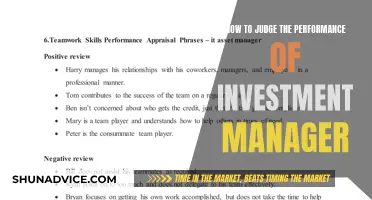
Home equity investment is not a scam in itself, but there are scams that target people looking to invest their home equity. For example, Point, a home equity investment company, is not a scam. It has been in business since 2014 and has an Excellent rating on Trustpilot. However, there are predatory scammers who target people in financial need, and it is important to be cautious when considering options like refinancing, second mortgages, or Home Equity Lines of Credit (HELOCs). Loan flipping, equity stripping, and home improvement scams are some common types of home equity scams.
| Characteristics | Values |
|---|---|
| Home equity investment companies | Point, Unison, Hometap, Figure, LendingTree |
| Home equity investment scams | Loan flipping, equity stripping, home improvement scams, changing terms during servicing, signing over your deed |
| Home equity investment risks | Losing your home, owing more than your home is worth, a drop in property values, rising interest rates, skyrocketing payments, a lower credit score, a higher debt-to-income ratio |
What You'll Learn

Loan flipping or refinancing
Loan flipping, also known as loan churning, is a type of mortgage scam where a homeowner is persuaded to repeatedly refinance their mortgage, generating more fees for the lender. This scam often targets elderly or vulnerable homeowners who may not fully understand the financial implications of repeated refinancing.
In loan flipping, a lender persuades a homeowner to refinance their mortgage multiple times, often promising lower monthly payments or a way to cash out some equity. While refinancing can provide these benefits, it also comes with costs, such as closing costs and appraisal fees, which can eat into the homeowner's equity. Repeated refinancing can result in the homeowner losing a significant portion of their equity to cover these fees.
Loan flipping can also extend the term of the loan, resulting in the homeowner paying more interest over the long run. For example, if a homeowner has 10 years left on their original mortgage and refinances into a new 30-year loan, they will end up paying interest for a much longer period.
To avoid loan flipping scams, homeowners should be cautious about how often they refinance their mortgage. It is generally recommended to keep mortgages intact for at least 5 to 6 years before considering refinancing, as the cost of frequent refinancing may outweigh the financial benefits. Homeowners should also compare options, review costs closely, and seek advice from a trusted source or a HUD-approved housing counselor before making any decisions.
Red flags of a potential loan flipping scam include being approached by the same mortgage loan officer to refinance year after year and being offered repeated refinances by a lender. Homeowners should be wary of lenders who try to pressure them into frequent refinancing and should always review all paperwork and disclosures thoroughly before signing anything.
Active Investment Managers: Strategies and Secrets Unveiled
You may want to see also

Equity stripping
The new owner-investor then charges the tenant rent, which is often higher than the previous mortgage payments. If the former homeowner falls behind on these new, higher payments, the new owner can evict them. In another version of this scam, the homeowner is offered a loan they cannot afford, or they are encouraged to lie on a loan application to qualify for a more expensive mortgage. The scammer then forecloses on the property when the homeowner is unable to make the payments.
In both scenarios, the homeowner loses their house and any equity they have built up. Equity stripping scams are particularly dangerous when people are in financial trouble, and scammers will often target those facing foreclosure or other financial difficulties, making false promises of relief.
To avoid falling victim to equity stripping, it is important to be cautious when approached with offers of financial assistance. Consult a reputable financial counsellor or real estate attorney, and have all legal documents reviewed by a lawyer before signing anything.
Investing at 25: Building a Balanced Portfolio for the Future
You may want to see also

Home improvement scams
- The "free" inspection: A scammer will knock on your door or call you, claiming they've noticed an issue with your house. They will offer to inspect the problem for free and then provide a reasonable quote. They may say their price is discounted due to leftover materials. Once you agree, they will demand full payment upfront and never return to complete the work.
- Cheap post-disaster repairs: After a natural disaster damages your house, a fake contractor will offer you affordable repair services, claiming you can get reimbursed through your homeowner's insurance. You give them a deposit, but they either don't complete the job or do it poorly, and you're unable to contact them.
- The snowballing home improvement project: You hire a contractor for a small job, but they point out other, more expensive "issues" that need immediate attention. If you're not interested, they may threaten to leave the project unfinished or intentionally do poor-quality work so you'll call them for more repairs.
- They are not licensed or insured: While some states don't require licensing, a lack of credentials is a warning sign.
- They ask for payment in cash, prepaid debit cards, or online money transfers, which are harder to trace or recover.
- They claim to have leftover materials from another job to justify a discount.
- They try to arrange financing for your project by recommending a specific lender.
- They demand full payment upfront.
- They tell you to obtain any necessary building permits (which is usually the contractor's responsibility).
- They pressure you to make an immediate decision or refuse to sign a contract, insisting on a handshake deal.
To avoid home improvement scams:
- Ask for references and get contractor recommendations from people you know and trust.
- Find vetted contractors who belong to reputable associations, such as the National Association of the Remodeling Industry (NARI).
- Get everything in writing: A binding contract outlining the project scope, costs, start and completion dates, and the contractor's information can protect you.
- Never pay in full upfront. Only make the final payment once the project is complete and you're satisfied.
Smartly Investing 1 Crore in India: Strategies and Options
You may want to see also

Changing terms during servicing
Home equity scams are a serious issue, and it's important to be vigilant when it comes to protecting your finances. One common scam tactic is "changing terms during servicing", where predatory lenders employ bait-and-switch tactics to maximise profit. Here's how it works and what you can do to avoid falling victim:
How the Scam Works
The "changing terms during servicing" scam is a classic bait-and-switch tactic used by predatory lenders. When you apply for a loan, they present you with one set of terms and conditions, often quite favourable. However, when it comes time to finalise the loan and sign the paperwork, they switch to a different set of terms that are less favourable to you as the borrower. These new terms may include higher fees, higher interest rates, or other traps designed to make it more difficult for you to make your loan payments.
This scam is effective because it preys on people's desire to get a good deal. When lenders present borrowers with an initially attractive offer, it can be tempting to jump at the opportunity without scrutinising the details. Scammers rely on this impulse to lure people into their trap.
Red Flags and Warning Signs
The good news is that this scam can be avoided if you know what to look out for. Here are some red flags and warning signs that indicate a potential "changing terms during servicing" scam:
- The terms seem too good to be true. If a deal seems too good to be true, it probably is. Be cautious of extremely low fees, interest rates, or other terms that seem unusually favourable.
- Changes to the terms during the signing process. If the lender tries to change the terms at any point during the negotiation or signing process, this is a major red flag. Walk away immediately and find a different lender.
- Pressure to sign quickly. Scammers will often pressure borrowers to sign the paperwork quickly, without giving them adequate time to review the terms or consult with a trusted advisor.
- Refusal to allow thorough review of documents. If the lender is reluctant to let you review the loan documents thoroughly, or tries to rush you through the process, this is a sign that they may be trying to hide something.
- Claims that changes are "standard" or "nothing to worry about". Scammers may downplay the significance of changes to the loan terms, claiming that they are standard practice or not a big deal. Don't be fooled—any unexpected changes should be treated with caution.
How to Protect Yourself
To protect yourself from this type of scam, it's important to be vigilant and cautious when considering any loan offer. Here are some steps you can take:
- Take your time. Don't rush into any loan agreement. Take the time to carefully review all the documents and understand the terms before signing anything.
- Consult with a trusted advisor. Consider seeking advice from a HUD-approved housing counselor, a trusted attorney, or a financial advisor. They can help you spot potential scams and make informed decisions about your finances.
- Be wary of high-pressure sales tactics. If a lender is pressuring you to act quickly or make an immediate decision, this is a red flag. Legitimate lenders will give you the time and space to make an informed decision.
- Trust your instincts. If something feels off or doesn't seem right, trust your instincts and walk away. It's better to be safe than sorry when it comes to your finances.
European Equities: A Risky Investment Choice?
You may want to see also

Signing over your deed
First, it is important to understand what a property deed is and its legal implications. A property deed is a written and signed legal document that transfers ownership of real property from the old owner (the grantor) to the new owner (the grantee). It serves as written evidence of the property transfer and must be signed by the grantor and accepted by the grantee. In the context of home equity investment, you would be the grantor, signing over the deed to an investor or company as part of the agreement.
Before signing over your deed, it is crucial to do your due diligence and research the investor or company you are dealing with. Check their credentials, reputation, and track record. Make sure they are legitimate and trustworthy. Be wary of unsolicited offers or high-pressure sales tactics.
When considering signing over your deed, seek independent legal advice from a qualified real estate attorney. They can review the agreement, explain the terms and conditions, and advise you on your rights and obligations. This will help protect you from potential scams or unfair practices.
Be cautious of any offers that seem too good to be true. Scammers may pressure you to make a quick decision, but it is important to take your time and fully understand the terms of the agreement. Read the fine print and ask questions about anything you don't understand. Pay close attention to the fees, costs, and potential risks associated with the transaction.
Remember that signing over your deed has significant consequences. You are essentially transferring ownership of your property to someone else. This could affect your rights as a homeowner, your ability to make decisions about the property, and your financial situation. Make sure you fully understand the long-term implications of signing over your deed.
Finally, be aware of the potential risks and scams associated with home equity investments. For example, equity stripping is a scam where a homeowner is pressured into a new home loan they cannot afford, ultimately leading to foreclosure. Another scam involves contractors offering home improvement services and then steering homeowners towards unscrupulous lenders. Protect yourself by being informed, vigilant, and seeking professional advice.
Chris Gardner's Life Savings Investment: A Fateful Decision
You may want to see also
Frequently asked questions
Home equity investment is an alternative to a HELOC (Home Equity Line of Credit) that allows homeowners to receive a lump sum of money representing a portion of the equity in their home without going into severe debt.
Home equity investment companies like Point buy equity from homeowners, allowing them to tap into the equity accruing in their home without taking on new debt. Homeowners input information about their home and financial history, and the company makes them an offer to purchase a percentage of their home's value. After additional screening, the company provides the homeowner with the agreed-upon loan amount.
Yes, there are risks associated with home equity investment. If the home's value increases, the homeowner owes the company a percentage of the overall increase, which can be a significant amount. Additionally, there may be fees and costs associated with the investment, such as processing and escrow fees, appraisal costs, and risk adjustments. It's important to carefully review the terms and conditions before making any decisions.







